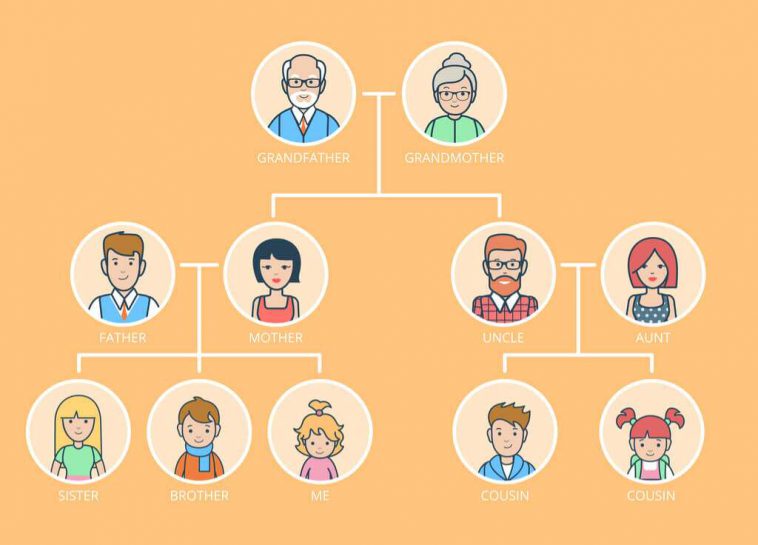According to Wikipedia,
“A person’s next of kin is that person’s closest living blood relative. Some countries such as the United States have a legal definition of “next of kin.” In other countries, such as the United Kingdom, “next of kin” may have no legal definition and may not necessarily refer to blood relatives at all.”
In Nigeria,
Ideally, a person’s next of kin (NOK) is that person’s closest living blood relative, usually a spouse, child, parent, sibling, niece or nephew, aunt or uncle, adopted children, and in rare cases, grandparents.
The issue of next of kin as it relates to who is to be paid one’s entitlement in the event of any eventuality is an issue that most people take for granted. While in gainful employment, some people put their brothers, sisters, or other relatives they feel can best take care of their family in the event of their demise.
Some of these people could have been indicated as the next of kin when the man or woman got employed and was single. However, as time passes and they get married, some need to remember to update their records. Most people choose to leave it even though they are now married and have kids.
This brings the ready question to mind;
“Who is the best choice for next of kin?”
In reality, things might not be the way they seem in the event of death, as one will not be there to determine, supervise or intervene in how his estate is applied.
Many cases abound in which families have been made to bear the brunt after the death of their loved ones. Wives and children have been thrown out of their homes or even denied access to even a penny from the sweat of their loved ones.
When my soldier was stationed in Owerri, Imo State, a soldier’s wife came to me to express her fears as she had just discovered that her husband used his junior brothers as his next of kin, not minding that she was pregnant with their fourth child. So I spoke to him as we were close about the importance of having his wife or children as next of kin to avoid any untoward event in case of any eventuality. The wife, too, expressed her fears, but his only response was that he was “not dying anytime soon.”
In his words, “Madam, I never wan die, I go still change am (pidgin)“ Unbeknown to us all, it was as if she had a premonition as death came calling a month later.
When the deceased’s family came to take his corpse home for burial, they took away almost all the properties he had labored with his wife over the years to acquire.
The widow was too engrossed with grief at her loss to notice much around her, although she had to fight to collect back their TV set and car.
The real drama started when she discovered that the next of kin had gone, processed, and collected some of the husband’s entitlement without her knowledge.
When she confronted them, she was told they were not at liberty to divulge anything they did because their late brother stated they were his next of kin, not her or her children.
All efforts to talk to the family or intervene by their church and others met a brick wall as the father, brothers, and sisters were embroiled in their fight for who gets what. Finally, they hatched a plan, took away her kids, and sent the pregnant widow away so that no penny would go to her. Thankfully, the army intervened and reunited the widow with her kids. Still, others might not be so lucky in some situations.
Though they made away with almost the entire entitlements of her late husband, she said she’s grateful to at least have her kids back. Presently, she resides with her parents in Maiduguri, Borno State, with her four kids, long forgotten and abandoned.
In some cases, the widows appeal for the military to intervene by ensuring that one of their children is included as the next of kin which in most cases does not work out as they are confronted with the documents submitted by their late husbands, which sadly enough out of omission or commission does not include any of them.
Hence, she and the children are left at the mercy of the person who often has problems and sees the money, his newfound wealth, as a blessing. Only in rare cases can one find God-fearing and sympathetic people who refuse and ask the organization to pay the benefits to the deceased wife and children.
Learning from life’s experiences around us, would you prefer for your loved ones to suffer in the event of the inevitable?
As it is, no person can better take care of the children or the family than their mother. Therefore, taking it for granted that having any other person outside your wife and kids to inherit and take care of them might not end well.
In polygamous homes, the man needs to state clearly in his will who gets what to avoid any warring among the family members.
As you read this, have you updated your records?
If the inevitable happens now, are your records updated?
Will your wife and kids be able to inherit what you left for them without a third party creating more pain and tears for them?
Our duty is to keep our records updated perfectly for the sake of all those we love and may leave behind.




True talk
Thank you.
Educative and inspiring indeed this words are…ignorance killing most of us I hope we use this educative words from a sister to make life a better place for us and our loved ones…No one knows when the journey of life will come to an end…God bless us all
Thanks Henry.